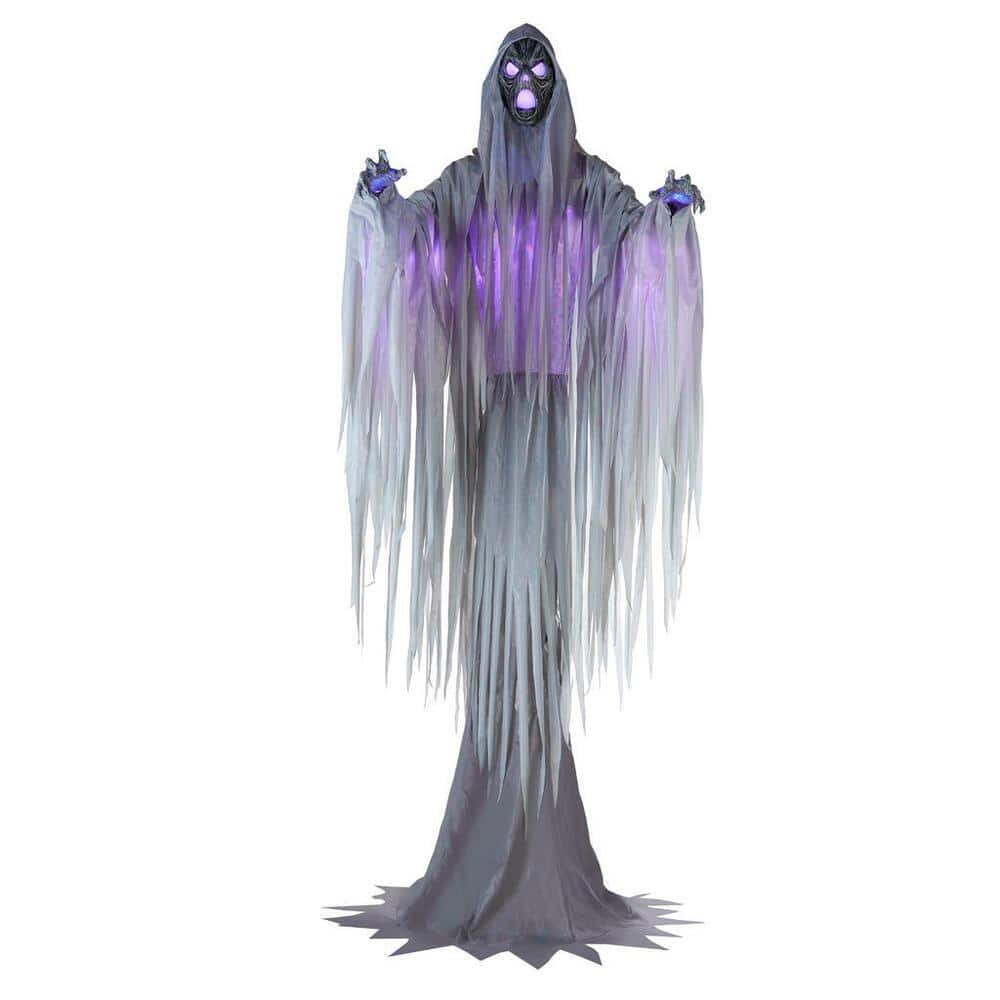Home Accents Holiday 15 ft Towering Phantom Halloween Animatronic
15-ft. phantom delivers a terrifying presence. LED lights in hands head and body change colors. Weather-resistant construction supports safe outdoor use.
Enhance the nightmarish atmosphere of your Halloween display with this animatronic phantom blow mold. Blowing in the wind, the phantom’s tattered and flowy robe show off creepy movements and lend a spectral quality to your graveyard scene. Super bright LEDs change colors to create a stunning and electrifying effect, delivering an eye-catching display. The 15-foot ghoulish figure towers over your yard, eliciting shrieks from unsuspecting passersby. Designed for outdoor installation, this animatronic phantom blow mold has a weather-resistant construction for nonstop haunting come rain or shine.
- Weather-resistant material withstands the elements
- Suitable for outdoor placement
- The included stand simplifies installation
- Phantom measures 180 in. H x 66.5 in. W x 70 in. D
- Super bright LEDs offer color-changing illumination
- Includes one phantom blow mold, stake and stand
Additional information
| Product Depth (in.) | 70 |
|---|---|
| Product Height (in.) | 180 |
| Product Width (in.) | 66.5 |
| Manufacturer Warranty | NA |


Reviews
There are no reviews yet.